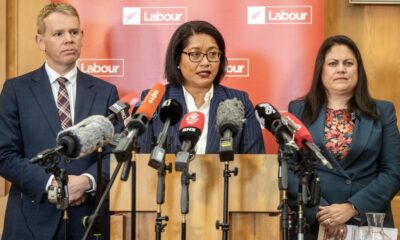Politics
Government’s Fees-Free Policy Reset Risks Worsening Inequity

The Government of New Zealand’s recent reset of its fees-free policy may fail to incentivize tertiary education and could further disadvantage underrepresented groups. An analysis led by the Ministry of Education has raised significant concerns about the effectiveness of the revised policy, which has been labeled a “deadweight” initiative. The report suggests that the policy should be discontinued and funding redirected to more impactful areas.
The original fees-free policy was introduced in 2018 as a cornerstone of the Labour Party’s platform during the 2017 election campaign. Initially, it covered the first year of tertiary study and was intended to expand to three years, a goal that was never achieved. The reset now limits the fees-free provision to the final year of study, a change that has been agreed upon in coalition agreements among the National Party, ACT Party, and New Zealand First Party.
Concerns highlighted in the Ministry’s analysis indicate that this approach may exacerbate existing inequities in the education system. Māori and Pacific students are particularly at risk, as they tend to have lower completion rates for bachelor’s degrees and higher qualifications. By restricting fees-free provisions to the final year, access may become even more challenging for these groups, who already face barriers in the education system.
The Ministry’s analysis underscores the importance of ensuring that policies designed to promote educational access do not inadvertently benefit only the more advantaged. The findings indicate that a significant portion of funding could be better utilized if redirected to programs that directly support students who face systemic challenges in completing their education.
As the Government moves forward with the implementation of this reset, it will need to address these concerns to ensure that the fees-free initiative serves all students equitably. Failure to do so could lead to a widening gap in educational attainment, undermining the very objectives the policy was meant to achieve.
In conclusion, while the intention behind the revised fees-free policy may be to promote tertiary education, the analysis from the Ministry of Education raises crucial questions about its potential impact on equity among students in New Zealand. The Government faces a critical task in balancing the needs of all learners as it navigates these complex issues in the education landscape.
-

 World6 days ago
World6 days agoPrivate Funeral Held for Dean Field and His Three Children
-

 Top Stories1 week ago
Top Stories1 week agoFuneral Planned for Field Siblings After Tragic House Fire
-

 Sports3 months ago
Sports3 months agoNetball New Zealand Stands Down Dame Noeline Taurua for Series
-

 Entertainment3 months ago
Entertainment3 months agoTributes Pour In for Lachlan Rofe, Reality Star, Dead at 47
-

 Entertainment2 months ago
Entertainment2 months agoNew ‘Maverick’ Chaser Joins Beat the Chasers Season Finale
-

 Sports3 months ago
Sports3 months agoSilver Ferns Legend Laura Langman Criticizes Team’s Attitude
-

 Sports4 weeks ago
Sports4 weeks agoEli Katoa Rushed to Hospital After Sideline Incident During Match
-

 Politics2 months ago
Politics2 months agoNetball NZ Calls for Respect Amid Dame Taurua’s Standoff
-

 World2 weeks ago
World2 weeks agoInvestigation Underway in Tragic Sanson House Fire Involving Family
-

 Entertainment3 months ago
Entertainment3 months agoKhloe Kardashian Embraces Innovative Stem Cell Therapy in Mexico
-

 Sports4 weeks ago
Sports4 weeks agoJamie Melham Triumphs Over Husband Ben in Melbourne Cup Victory
-

 World4 months ago
World4 months agoPolice Arrest Multiple Individuals During Funeral for Zain Taikato-Fox





















